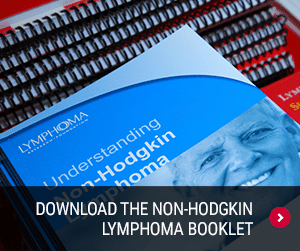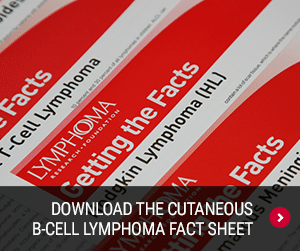
What is Lymphoma?
Cutaneous B-Cell Lymphoma: Relapsed/Refractory
The term “relapsed” refers to disease that reappears or grows again after a period of remission.
The term “refractory” is used to describe when the lymphoma does not respond to treatment (meaning that the cancer cells continue to grow) or when the response to treatment does not last very long.
Secondary therapy for relapsed (disease returns after treatment) CBCL can include surgery, topical treatments, injected steroids, or radiation. Slow-growing CBCLs rarely transform into more aggressive types of lymphoma. For diseases that become widespread (systemic), regimens that may be used include:
- Rituximab (Rituxan), either alone or in combination with chemotherapy.
Treatments Under Investigation
Many treatments at various stages of drug development are currently being tested in clinical trials for relapsed or refractory CBCL, including:
- Lenalidomide (Revlimid)
- Bendamustine (Treanda)
- Rituximab (Rituxan)
To learn more about relapsed/refractory CBCL, download the Cutaneous B-Cell Lymphoma Fact Sheet.


